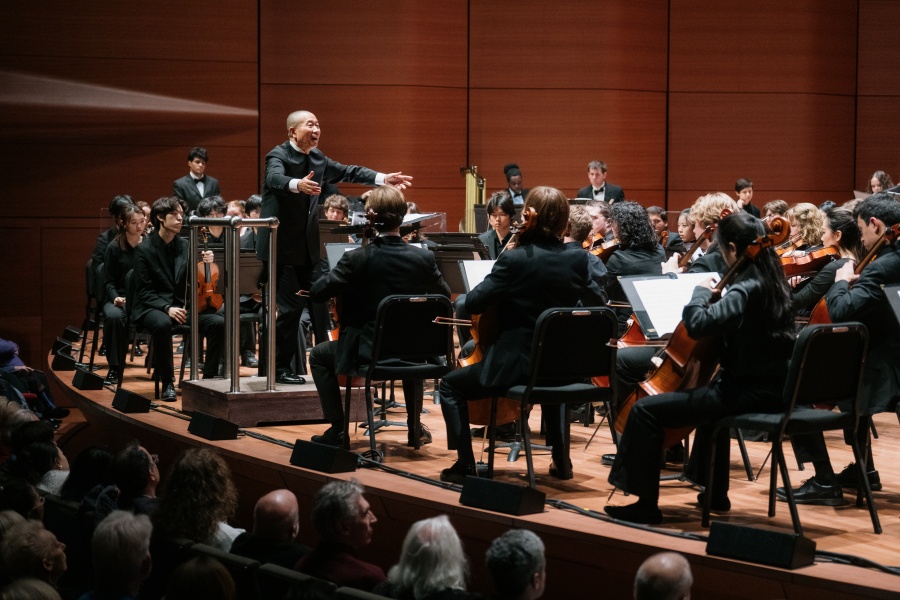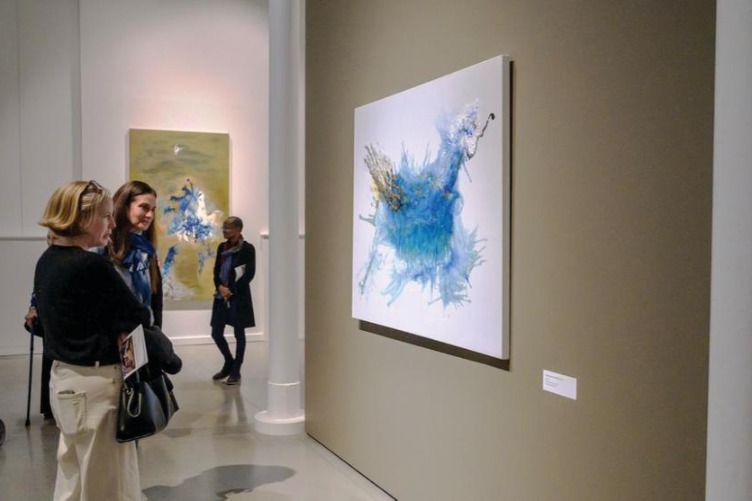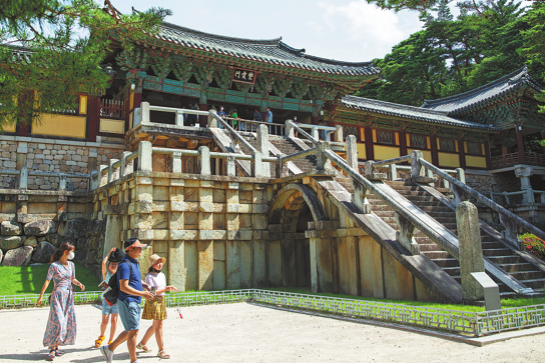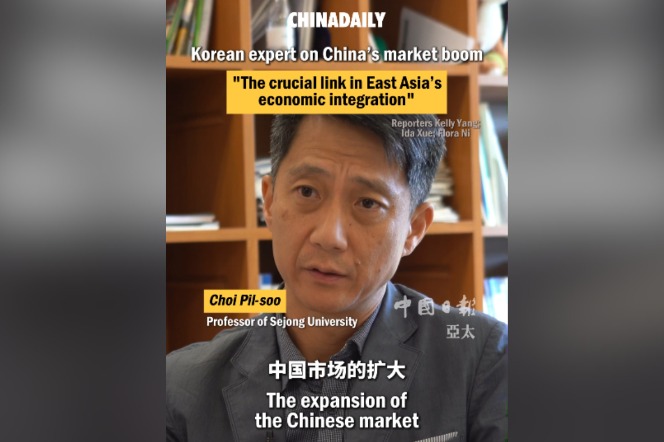Tan Dun bridges East and West at Lincoln Center


It was supposed to be a work celebrating the 250th anniversary of Ludwig van Beethoven's birth, but the pandemic delayed the 2020 premiere, allowing Chinese American composer Tan Dun to expand his Choral Concerto: Nine into a three-part composition.
Entitled, Nine, Wine, and Time, Tan explained that "nine" in Chinese is pronounced jiu — a word that not only denotes the number nine but also suggests "wine" and the idea of something "everlasting."
Tan said he felt a deep connection between Beethoven's Ninth Symphony and Chinese philosophy, noting that the ancient Taoist thinkers Lao Zi and Zhuang Zi, some 2,500 years ago, expressed ideas similar to those found at the beginning of the "Ode to Joy," where Friedrich Schiller's lyrics proclaim that "all people are brothers and all creatures are together in this one world."
Elements of Taoist and Buddhist traditional chants are woven into the choral writing. Tan also noted that the work incorporates poetry by Qu Yuan, written some 2,400 years ago, and by Li Bai, from 1,300 years ago.
The work was performed at the Lincoln Center's Alice Tully Hall on Wednesday to mark the 20th anniversary of the Bard College Conservatory of Music, where Tan is the dean, as well as to honor President Leon Botstein's 50th year at the helm of Bard College.
When Tan spoke about incorporating Li Bai's poetry, he reflected on the poet's reverence for nature, a quality that clearly resonated with the audience.
"I thought it was amazing, overwhelming, so beautiful, so powerful," said Elizabeth Aaron, an assistant high school principal from Summit, New Jersey. "It was stunning to listen to the voices do the wind and do nature."
"The way in which it felt like nature, I think, just the voices and the instruments making me feel as if I was in the world," she added.
That sense of natural harmony extended beyond the choral writing to the orchestra itself, where musicians found Tan's techniques equally striking.
"It worked really well. It was very powerful and effective for me. Everything seemed to fit together in a logical, effective way," said Whitacre Hill, a French horn musician.
Hill said he was impressed by how Tan was "able to get a vocal effect from the singers that sounded like an effect that the violins do called ponticelle," which is a bowing technique that creates a metallic, eerie or ghostly sound by playing very close to the bridge.
"I've never heard anything by Tan Dun before, and it was huge and impressive and so creative and powerful. I was really amazed," Hill added.
Born and raised in Hunan province, China, Tan studied at the prestigious Central Conservatory of Music in Beijing before moving to the United States to continue his career.
Over the decades, Tan has earned both Grammy and Academy Awards, and his works have been showcased in renowned institutions such as New York's Guggenheim Museum, the Museum of Modern Art and Beijing's Chambers Fine Art Gallery. Among his celebrated compositions are Marco Polo, Tea: A Mirror of Soul, and Buddha Passion. Tan is widely recognized for blending elements of his Chinese heritage with contemporary forms, creating music that bridges cultures and speaks to audiences around the world.
"The performance was amazing. The variety in the music and the fact that the composer did connect people to people," said Mary Nixon, a former choir singer. "I think this whole audience right now feels as one, and that's what we need in the world right now."
"I want to go to China, but I'm an old lady and I probably won't get there," the 87-year-old added with a laugh. "So this is the best I can do."
Backstage after the performance, Tan greeted China Daily with characteristic warmth and exuberance. During an exclusive interview, he reflected on the honor of performing for such an important occasion, one celebrating both Bard's artistic legacy and its commitment to education.
"To me, education and love are the only keys to open the gates of soul and your mind," he said. "So I feel so lucky to work with all these young people for the future."
He also spoke passionately about music's power to unite people across cultures.
"I think there are many, many ways to bring people together," he said. "But the musical way is such a unique way, because it can really vibrate in different kinds of hearts and spirits, no matter if you speak a different language, no matter if you came from a different tradition."
He continued: "No matter from East or West, there is something always in common. That commonness actually, that something in common is a philosophy. It's something beautiful existing in us. That's the future. I feel so proud to be here to share the East and West as one."
bilinlin@chinadailyusa.com

































